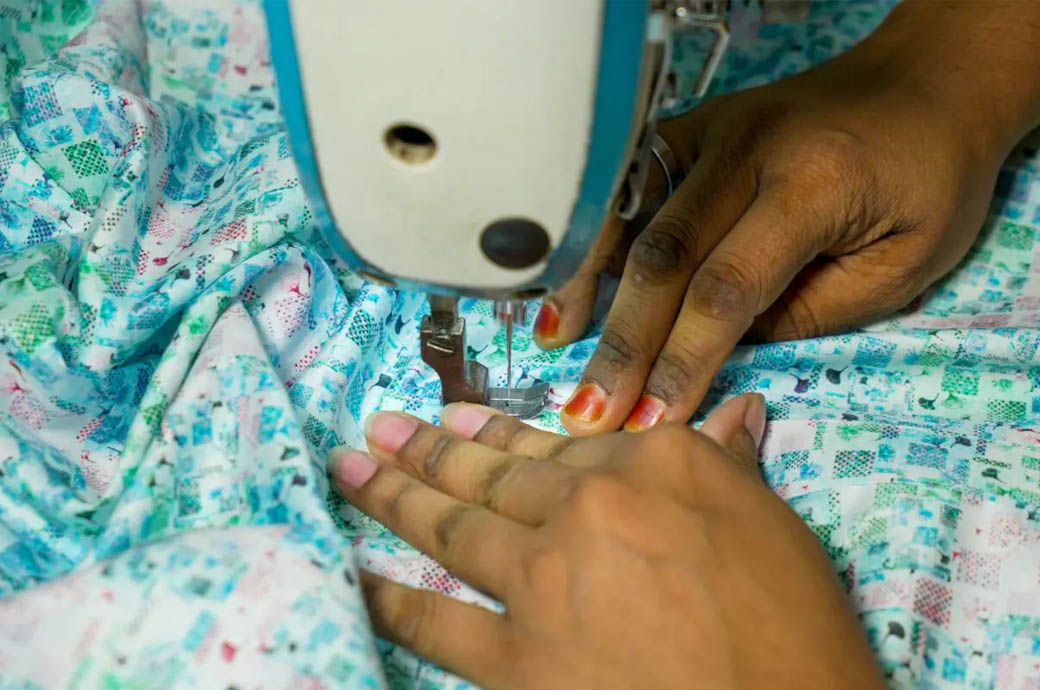
Urgent action is necessary to ensure fair wages for garment workers in Bangladesh, according to a recent report by Swedwatch, a Stockholm-based non-profit organization. Despite Bangladesh being a crucial supplier of apparel to the European Union and a recent increase in the national minimum wage, many workers still earn significantly less than what is required to meet basic living standards. The minimum wage was raised from 8,000 taka to 12,500 taka, equivalent to about 94 euros per month, but this only covers 38 percent of what is deemed a living wage, leaving workers struggling to afford essentials like food, housing, healthcare, and education.
The low wage situation has created a cycle of debt and exploitation, particularly for women who make up the majority of the workforce. Not only do they earn less than their male colleagues, but they also endure extended working hours while balancing household responsibilities. Swedwatch highlights two fundamental issues that contribute to the persistent low wages in this sector. Firstly, workers in Bangladesh lack the bargaining power necessary to demand higher wages. Weak enforcement of labor laws and significant obstacles to union formation hinder their ability to negotiate better pay. Those who attempt to organize often face threats, violence, or termination. Even when unions are formed, they are frequently viewed as corrupt and ineffective, offering no real platform for workers to advocate for fair compensation.
The second critical issue stems from unsustainable purchasing practices by global brands sourcing from Bangladesh. These companies often pressure suppliers to cut costs and rush production timelines—a tactic known as price squeezing. Such pressures lead suppliers to reduce expenses, usually impacting workers’ wages and overall well-being.
To address these concerns, Swedwatch urges global brands and EU policymakers to collaborate for meaningful change. For brands, it is essential to align their due diligence practices with international standards, such as the UN Guiding Principles on Business and Human Rights. This could involve ensuring purchasing strategies that promote, rather than suppress, living wages. Meaningful engagement with workers and trade unions, establishing confidential grievance systems, and implementing living wage benchmarks are all recommended approaches.
Rather than severing ties with suppliers who do not comply with expectations, brands should engage in cooperative efforts to enhance working conditions, including providing financial support when necessary. On the policy front, EU member states can enhance the recently adopted Corporate Sustainability Due Diligence Directive by imposing clear obligations for equitable purchasing practices. Expanding the directive to encompass a broader range of companies, strengthening compliance mechanisms, and offering guidance on supporting living wages are crucial steps in this process.
Policymakers are urged to mandate the development of ethical purchasing policies among brands, explicitly prioritizing fair compensation for workers in their supply chains. Swedwatch’s recommendations highlight the urgent need for coordinated action to improve the wages and working conditions of garment workers in Bangladesh, ensuring that their rights and livelihoods are upheld.






